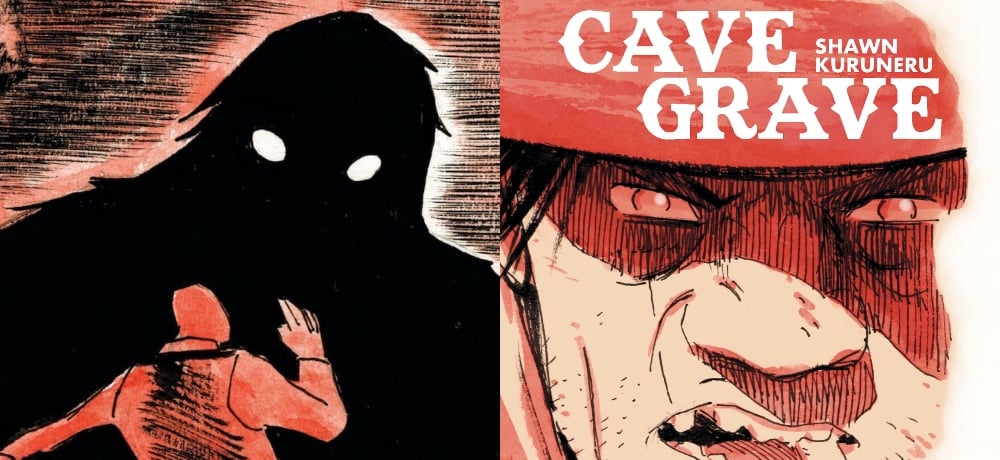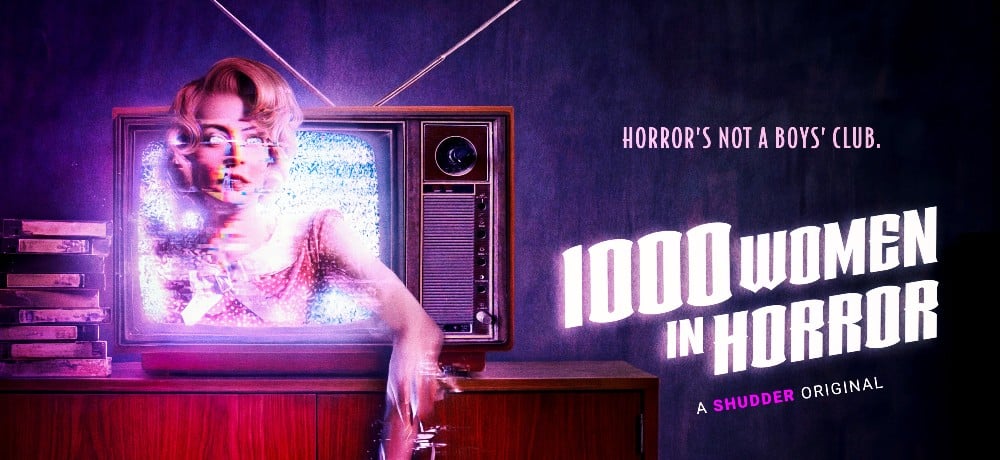





Over the last few months, the religious thriller Them That Follow has been enjoying much success on the festival circuit after celebrating its world premiere at the 2019 Sundance Film Festival, and making its way to Austin last week for SXSW 2019. While in Austin, Daily Dead sat down with two of the co-stars of Them That Follow—Alice Englert and Thomas Mann—to talk about their experiences digging into the religious themes of the film, collaborating with their fellow cast and crew members, and more.
Co-written and co-directed by Britt Poulton and Dan Madison Savage, Them That Follow is centered around a young woman named Mara (Englert) who happens to be the daughter of Pastor Lemuel (Walton Goggins), the charismatic and heavy-handed leader of a snake-handling church tucked away from the world deep in the Appalachian Mountains. Mara finds herself at a crossroads, as she struggles with her love for community outcast Augie (Thomas Mann) and her duty to marry fellow parishioner Garret (Lewis Pullman), which would of course please her father most.
Them That Follow also stars Oscar winner Olivia Colman, Kaitlyn Dever, and Jim Gaffigan, and was recently acquired by The Orchard for a later release. You can read my thoughts on the film HERE.
If we could start at the beginning, I’d love to hear what was the appeal of this story initially, and what you saw in these characters initially that made you want to work on this film?
Thomas Mann: Well, I was aware of Pentecostal churches in general, but then snake handling church is a whole other level that I was not familiar with at all, until the script brought it to my attention. Then, I started looking into it. I think religion itself is a very ripe subject for art, and for subjectivity, and so I thought it could be interesting.
Alice Englert: Well, it's like narrative about narrative as well. And religion has such strong stories.
Thomas Mann: Basically, it's about something that you can't understand. Like, that's the whole point of making this movie is to try to understand a little bit better, and to try to have empathy for people that you might not agree with.
Alice Englert: Yeah, I was really interested in the dynamic of Mara and her father, and being the pastor's daughter. Trying to become an adult and finding that as it is happening to you, what’s the difference between being innocent and then suddenly becoming responsible, or a part of the community, and how that can really creep up on a person? Watching that was something that I find really interesting, now trying to become a kind of grown-up that I actually want to be myself.
I do think we all believe in something, and I don't think religion is that different from other belief systems, in a way. And you said this thing earlier, Thomas, and I've really latched onto it: I found it fascinating that there are these rules drawn up by religion about how it's okay to love people, and what's okay and what isn't, and that Augie is not allowed to be loved by his family because of his beliefs, which seems contradictory for religion, of course.
Can you guys talk about the collaborative spirit on this film, because there is just an incredible array of talent assembled here, including yourselves. Were you guys just tucked away from the world together?
Thomas Mann: We were holed up in the woods for a lot of it, and staying in a Holiday Inn on the side of the highway in the middle of nowhere.
Alice Englert: We're like in this neon desert of darkness at night, with car parks around us. I don't drive, so it was wild to me to be in a place that had no sidewalks.
Thomas Mann: Yeah, you get in your truck and you drive if you have to go somewhere.
Alice Englert: When we would drive to our locations, we'd just be on the side of a hill for all day long, and then we would head back to the darkness. I think it's so cool when you're doing a job and you're asked to go on a journey for the film like we did for this. It feels like you’re on a mission.
Thomas Mann: Yeah, it's like a summer camp thing, or a little expedition with this whole new family. Everyone's away from their homes. You only have each other and you're here to make this thing together, so why not just make the most of it and try to bond as much as possible? Luckily, we all ended up becoming great friends while we were making this movie. I don't think there's another cast that I’ve seen where everyone gets along quite as well as we all did here. It was wonderful.
I'm curious, because you mentioned empathy, and coming into this I'm sure you probably had some preconceived notions about this world and everything. How did this experience of working on Them That Follow, and going through what these characters go through in this, did you find some kind of commonality with them despite the difference? Was there something that you took away from this experience, in terms of what you maybe thought about this world, versus what you saw it as once you were finished?
Thomas Mann: Yeah, I was trying to think while we were shooting, I'm like, "Is there anything that I believe as much as they believe that holding a snake will prove your worth before God?" I was like, "I don't know that there is." That alone is fascinating to me, where you have that depth of feeling. It was almost admirable. I was like, “Maybe there's something wrong with me. Maybe I don't have all the answers.” Faith is a beautiful thing because you don't believe in something without needing proof. It requires a different sort of quality in your brain. I don't know. That was the little crumb that I took from it.
Alice Englert: I always think that our own belief systems are invisible to us because we're just living by them, so maybe this world doesn't seem so strange. In my head, I feel like it mustn't seem strange to believe what they believe. My character just unquestioningly goes about her life, making mistakes and doing all sorts of things as a human being trying to make it in this world. So it wasn't really a matter of empathy for me. To me, when it comes to my characters, I don’t really see them as either really good or bad people. That's so subjective, and I always have to feel like I can understand them or have empathy for what their efforts are, of what they're trying to do, regardless of whether or not they are bad or good.
---------
In case you missed it, check here to catch up on all of our live coverage of the SXSW 2019 Film Festival, including more interviews, reviews, and breaking news from Austin!